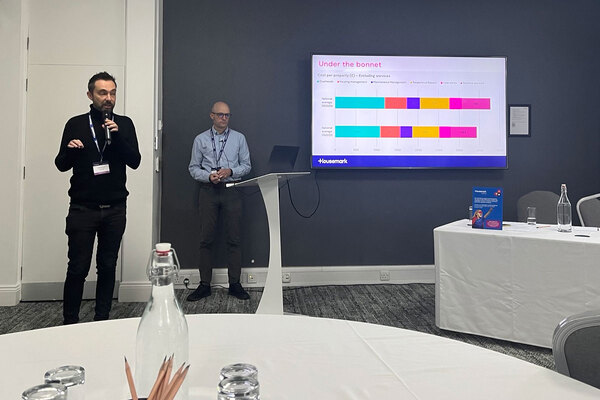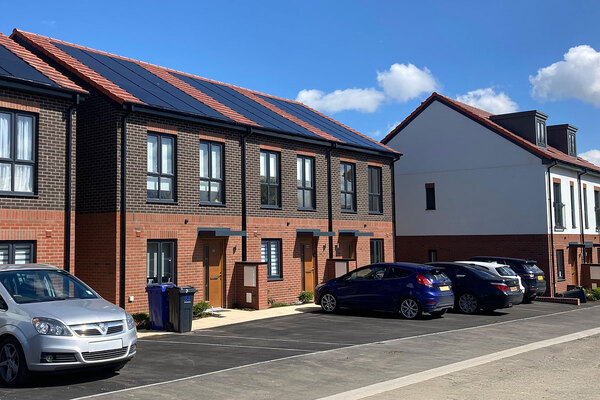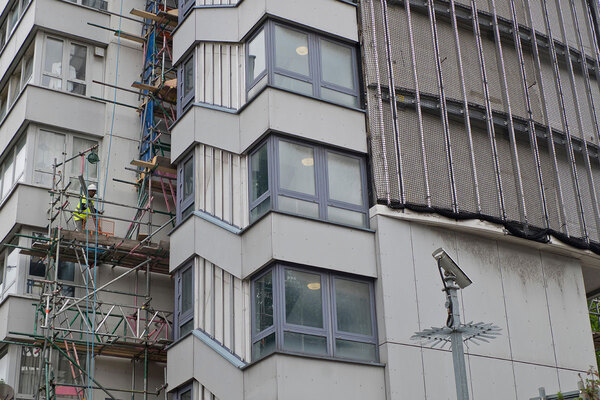You are viewing 1 of your 1 free articles
SHPS deficit expected to have halved in three years, experts say
The Social Housing Pension Scheme (SHPS) deficit is expected to have halved in three years at the next valuation, experts have said.
Pensions advisor LCP has estimated that the SHPS deficit will have dropped to around £700m compared with around £1.6bn three years ago.
The latest valuation of SHPS, which is run by pensions provider TPT Retirement Solutions, was carried out as at 30 September 2023 and the preliminary results are expected to be confirmed next month.
Mike Richardson, head of the social housing practice at LCP, said the next valuation is “likely to be reasonably good news overall”.
Although the funding position has improved, he said “it is most likely that, if anything, we may see a reduction in the length of the recovery plan rather than the level of contributions”.
“Deficit contributions are currently expected to continue until March 2028 and that date may be brought in a bit. Where associations have the current recovery plan in their budgets we don’t see any material changes being required, particularly in the short term,” Mr Richardson said.
Sam Mullock, partner at First Actuarial, noted that the funding deficit “remains stubborn and material”.
Although the deficit is expected to be “less than £700m”, Mr Mullock pointed out that this does not give the full picture.
“SHPS is now a much smaller scheme, partly because nearly £2bn of liabilities have left SHPS via 28 bulk transfers,” he said.
“Employers should focus on the funding level rather than the headline deficit. The funding level has hovered around 80% for many years, and this means we expect employers will need to continue paying similar levels of deficit recovery contributions,” he added.
Several housing associations have left SHPS over the past few years. Pobl, Wales’ largest housing association, became the latest landlord to leave, exiting in February this year.
Notting Hill Genesis, One Housing, The Guinness Partnership and Moat have also left the scheme.
Experts have predicted that more housing associations will leave as exit debts look set to have reduced by more than half over the past three years.
LCP estimated that the cost to associations of leaving SHPS to have dropped by more than half compared with 2020 levels due to “huge reductions in the solvency deficit”.
Mr Richardson said: “With a big reduction in the cost of exiting SHPS, we expect to see more associations taking this step.”
Tim Gilbert, a partner at LCP, added: “For many associations, the key issue is their exit cost – associations should have received their estimated exit cost at as September 2023 in late June, and in many cases this will be less than half the equivalent figure from three years ago.
“We’ve been working with associations that have seized the opportunity to exit at a cost much lower than it would have been in the past.”
Mr Richardson stated that “big changes” might be needed for housing associations offering defined benefit pensions, with future service costs expected to reduce.
“Here we are expecting significant reductions in contributions – for example the total cost of the final salary 60th section could reduce from over 40% of pensionable salary down to less than 20%,” he said.
The SHPS allows individual employers to decide how overall costs of future service are split between the organisation and the employee.
“This is a massive change, and employers will need to think carefully about how that reduction is shared between them and the individual,” Mr Richardson added.
In October 2023, Inside Housing reported that the estimated £750m SHPS deficit was on track to be cleared by 2028.
The sector is also awaiting the outcome of the benefit review by TPT and a high court case that could see millions added to SHPS liabilities.
Sign up for our development and finance newsletter
Already have an account? Click here to manage your newsletters
Sign up to the Social Housing Annual Conference 2024
The two questions of whether to invest funds in revitalising existing stock or in the development of new affordable homes, and how to raise social housing investment, are inextricably linked.
That is why the Social Housing Annual Conference is now running alongside the Inside Housing Development and Regeneration Summit, giving you the opportunity to gather comprehensive insights to inform your key strategic decisions in just one day.
Join 600 senior leaders with a common vision of funding and delivering quality, affordable homes and places for tenants and residents.













